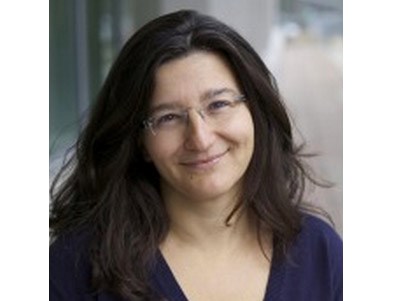After an influx of $3 million from the provincial government, B.C.'s world-leading genomic researchers are expanding a clinical trial that uses cancer patient genes to provide individualized care.
The Personalized Onco-Genomics program (POG) analyzes genomic sequences in people with advanced cancers – looking at as many as 20,000 genes in a given person – to determine what is making the cancer grow.
"This is an incredibly comprehensive look at someone's cancer," said BC Cancer Agency medical oncologist Dr. Janessa Laskin at Tuesday's press conference.
"The POG approach is quite different than anywhere else in the world."
Historically, oncologists would typically look at the cancer's origin – like lung, breast, colon – to devise a treatment strategy. While that worked well with a small segments of the population, doctors have found a "targeted therapy" approach was more successful.
"We already know that when we have a target and we have a drug, it works really well, we just need to find these targets in other patients," she said.
Based out of Vancouver, the trial is open to any B.C. resident, a caveat connected to the donations that have fueled the research. Since 2012, it's tested about 350 cancer patients, who together represent 50 different types of cancer.
POG, run by the BC Cancer Agency which is funded by BC Cancer Foundation, plans to expand that to 2,000 patients in the next five years.
That treatment is open to any B.C. resident that fulfills a "highly selective" eligibility, and has already seen 13 patients in the north.
That breaks down to six from Prince George, two from Prince Rupert, two from Fort St. John, and one each from Stewart, Smithers and Hazelton.
At this point, there are no northern doctors that are able to consent patients at the Centre for the North. In order to be enrolled in the program, eligible patients would have to travel to the BC Cancer Agency for their biopsy to determine if they are a good fit.
It's a customized approach to cancer, one that can discover specific mutations and lead to different drug treatments. Laskin noted that in about 10 per cent of the clinical trial cases, doctors have recategorized a patient's cancer and in 20 per cent of cases doctors have found an existing drug that could help treatment.
Jen Strack was one such patient.
A non-smoker with stage-4 lung cancer, Strack wasn't responding to the typical treatment.
After enrolling in the program in July last year, doctors recommended a growth-inhibiting drug that they wouldn't have suggested without information from her genome.
Not only did it stop the growth, her tumours "shrunk considerably."
"I'm slowly getting back to feeling normal again. Hope now isn't just a word," she said. "For me it's spelled P-O-G."
Premier Christy Clark, Health Minister Terry Lake and BC Cancer Foundation chair Greg D'Avignon all lauded POG's work for its international impact at Tuesday's morning announcement.
"These trials are setting a global standard for cancer care. ... It puts B.C. on the world stage. It saves lives and it attracts the best and the brightest from around the world." said Clark, whose mother and grandmother had cancer.
"All of us will have statistics like that in our own lives."
D'Avignon said the province is ranked among the top five places in the world for cancer treatment.
"This isn't by accident," said D'Avignon, who noted the foundation has more than 100,000 donors. "The reality is cancer centres and the best researchers around the globe are looking at B.C. for the very latest in treatment advances."
The program uses a huge sequencing facility, with over 300 research scientists and staff, that can sequence as many as 6,000 cancers a year.
The cost for each patient to go through the program is about $27,000 and sequencing just one genome costs $3,500. The program takes about 12 weeks, Laskin said, and can enrol between five and six patients a week.
Dr. Malcolm Moore, the new president of the BC Cancer Agency, was recruited from Ontario to head the agency.
Doctors stressed the research would be open to all British Columbians.
"This is not a Vancouver-centric project," said Laskin.
But it is highly selective with its patients. While Laskin projected the program would see as many as 2,000 patients in the next five years, people must fulfill a number of criteria:
• Have an incurable cancer, typically metastatic.
• Live in B.C.
• Be both fit and well.
• Have received limited chemotherapy treatment.
• Be willing to undergo experimental treatment.



